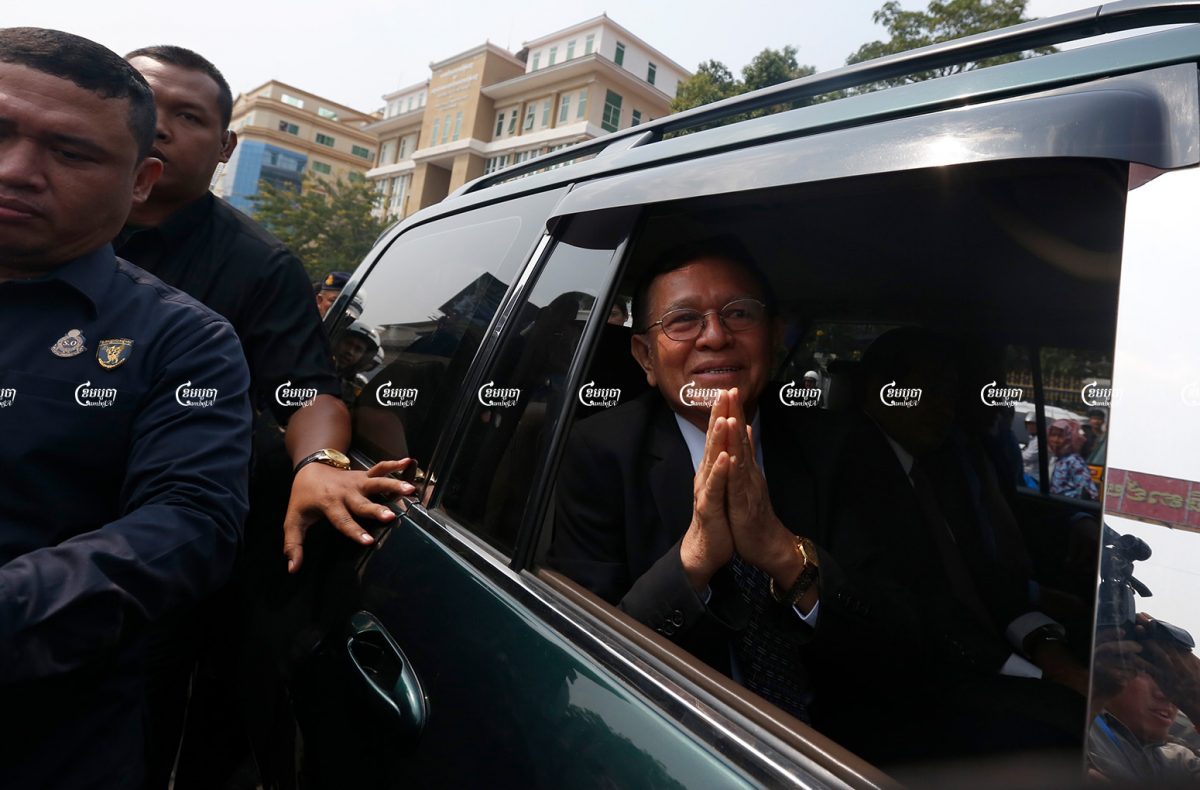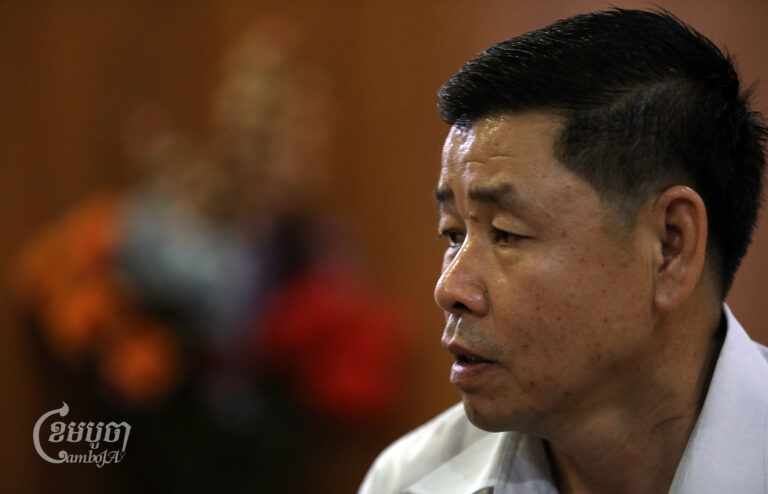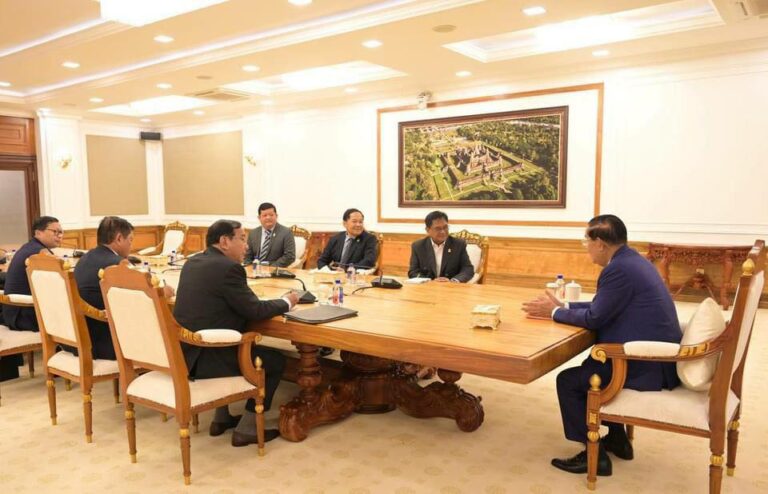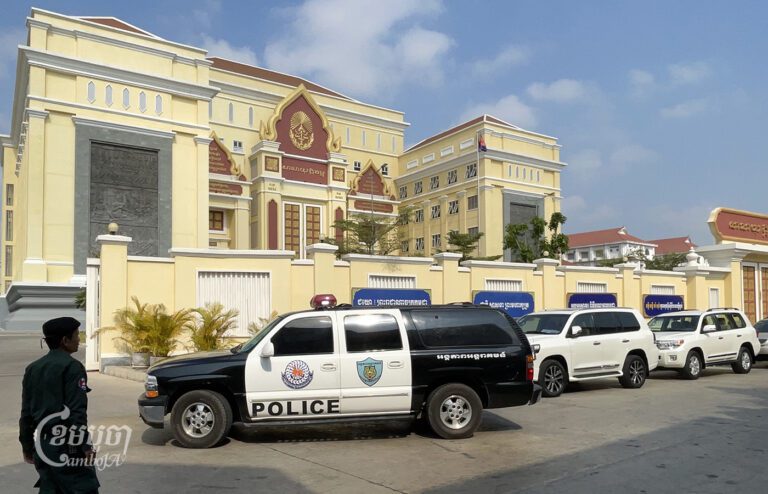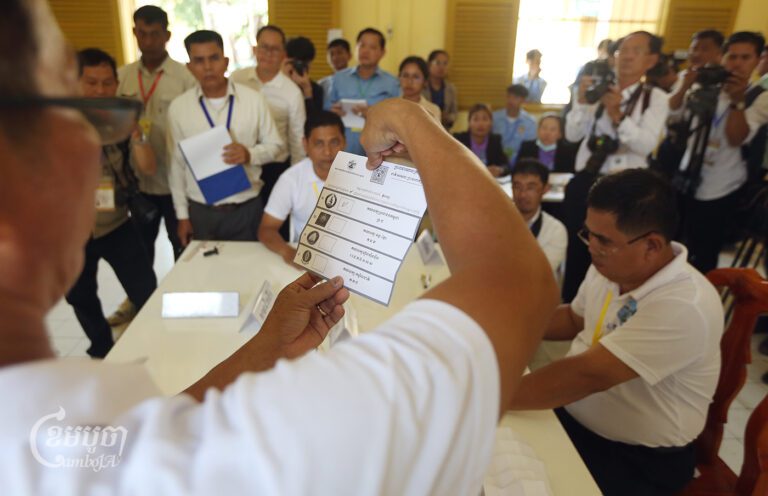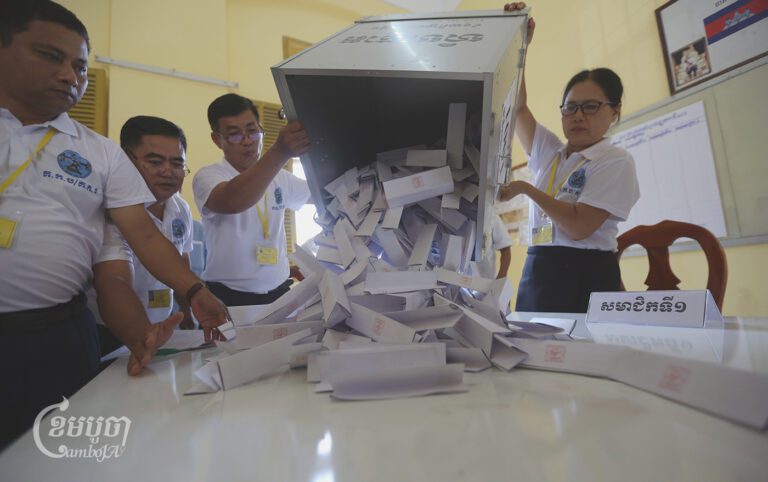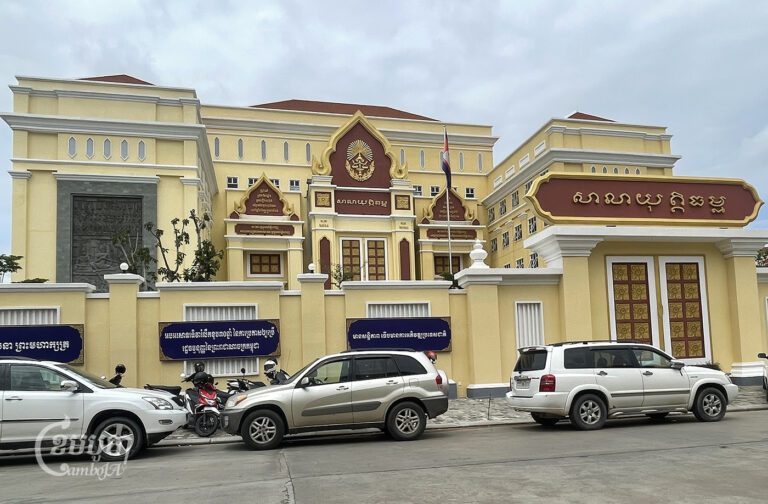Four years after the arrest of Kem Sokha, the former opposition leader remains in trial limbo.
Since his case was suspended in March 2020 amidst the early days of the COVID-19 pandemic, Sokha and his lawyers have been unable to advance any proceedings. Their filed motions have received no response from the court, even as it has resumed normal functioning for months — a status that has included initiating new trials against rights activists and Sokha’s fellow members of the former Cambodia National Rescue Party (CNRP).
Sokha’s defence lawyer Chan Chen said the defence team will no longer ask the court to resume the trial, noting that three previous requests have gone unanswered.
“We have submitted many times, and we don’t see any hope. It is not necessary to continue to submit the letter,” Chen said.
The delayed case against Sokha has drawn concerns from civil society groups and political analysts who say the court is part of a strategy to drive a wedge dividing CNRP leadership while restricting Sokha’s rights and ability to participate in politics ahead of the upcoming elections.
Sokha, president of the main opposition CNRP, was arrested September 3, 2017, and charged with conspiring with a foreign power for allegedly working with the US to attempt a so-called color revolution to overthrow the government of the ruling Cambodian People’s Party (CPP). Sokha has maintained that he has only acted legitimately and transparently to try to win an election.
The CNRP was also dissolved by Supreme Court order in 2017, allegedly for serving as a vehicle for that same attempted revolution.
The charges against Sokha and the CNRP at large, including criminal cases against other party members and leaders, have widely been denounced both in Cambodia and internationally as politically motivated in order to preserve the rule of the CPP.
The contentious trial against Sokha began in January 2020 and was suspended in March of that year because of the increase in COVID-19 cases in Cambodia. Since then, the court had not set a date to resume the trial, despite the defence lawyers’ appeals to do so.
In September 2018, the Phnom Penh Municipal Court released Sokha from Tbong Khmum prison but put him under house arrest, which he was released from in 2019. Sokha is currently under judicial supervision and while he is allowed to travel within the country, he is still facing restrictions and barred from conducting any political activity.
The defence attorney Chen said the indefinite delay of the trial has restricted Sokha further.
“It has really affected the rights of my client related to his freedom, including not being able to seek medical treatment abroad,” Chen said.
Taing Sunlay, director of the Phnom Penh Municipal Court, could not be reached for comment.
Justice Ministry spokesman Chin Malin said the court has already said Sokha’s trial isn’t a priority, in part because he is not in a detention center.
“Suspending the trial isn’t wrong in the procedure of the law because Kem Sokha isn’t under pretrial detention,” he said.
But social researcher Seng Sary believes postponing the trial of the treason charges against Sokha may hold a political function.
“If we see a political aspect, it is a tactic split up between Kem Sokha and Sam Rainsy,” he said. “When they are not split up, Kem Sokha will continue like this.”
Former senior CNRP official Meach Sovannara said Sokha’s repeated trial postponements suggest the ruling CPP still fears the prospect of former opposition leaders competing in the upcoming elections.
“The ruling CPP, they have a lot of money, armed forces and courts but they can’t tie people’s hearts — and they are the voters,” he said.
“Courts are under the influence of politicians, so the judgement isn’t based on the judge’s discretion, but on the power of politicians.”
Sovannara said political motives should be settled through politics, not the courts, to avoid negative impacts on the economy through rising tensions with Western countries related to human rights. Such countries have already pointed to deteriorating political freedoms to justify restrictions to preferential tariff agreements such as the EU’s Everything But Arms and the US Generalized System of Preferences.
Sok Eysan, spokesman for the ruling CPP, denied that the government interferes with the court, saying instead that major cases often take a prolonged period to move through the legal process.
“Please ask the judges, but the procedure of a big case cannot be a short proceeding. For example, some international cases have taken 10 years,” he said.
Eysan also rejected allegations the treason charges against Sokha are politically motivated.
“It was entirely implemented by the law because his speech was a plot to topple the legitimate government,” he said.
Still, the arguments from the government supporting the trial postponement don’t hold up with rights groups in Cambodia.
Am Sam Ath, deputy director at rights group Licadho, called on the court to continue the trial as soon as possible, noting that a prolonged hearing will impact the rights of the defendant, including that of receiving a fair trial in accordance with the law.
“It is not reasonable if the court has raised the issue of COVID-19 but other cases are functioning normally. Why is it that only the trial of [Kem Sokha] has been suspended?” Sam Ath said. “The prolonged hearing has affected his rights and freedom.


